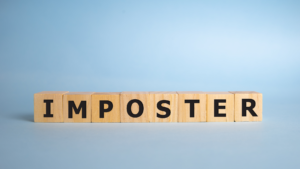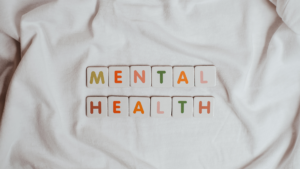Compassion literally means “to suffer together” or as the Merriam Webster dictionary tells us “sympathetic consciousness of others’ distress together with a desire to alleviate it”. Compassion as a verb is to understand, to act with positive intent, to secure the best for all. Among emotion researchers, it is defined as the feeling that arises when you are confronted with another’s suffering and feel motivated to relieve that suffering. It is a desire to take action and help. Showing compassion to survivors of domestic, family, and sexual violence is vital in aiding their healing and fostering a supportive community.
Self-compassion is a crucial aspect of healing for survivors of domestic, family, and sexual violence. It involves treating oneself with kindness, understanding, and patience in the aftermath of trauma. Self-compassion is not about self-pity or indulgence but about recognising one’s suffering and responding to it with care and support.
For those desiring to help survivors of domestic, family, and sexual violence taking action includes:
Active listening. Give survivors your full attention, acknowledge their feelings, and refrain from offering unsolicited advice or judgement.
Offer support without pressure, whether it’s accompanying them to support groups, helping with daily tasks, or providing information about legal and therapeutic resources. Be present and patient. Sometimes it may be to just listen.
Respect a survivor’s autonomy. Respect their decisions and choices regarding their recovery process. It may not be what you would do, but it is what they want to do. Everyone is different.
Educate yourself on the dynamics of abuse, the psychological impact, and the available resources for survivors.
Create a safe environment by being mindful of their triggers, respecting their boundaries, and providing a non-judgemental space where they can express themselves freely. Be a vault with the information you are given.
Showing compassion to survivors of domestic, family, and sexual violence is essential in promoting their healing, fostering resilience, breaking the cycle of violence, reducing the stigma, and creating a supportive and empathetic community. By listening, respecting their autonomy, educating ourselves, and providing a safe environment, we can make a significant difference in their lives. Compassion is not just an act of kindness; it is a powerful tool for change and healing.
For survivors of domestic, family, and sexual violence, what does self-compassion look like?
Self-compassion starts with acknowledging and accepting one’s emotions without judgement. Survivors often experience a range of emotions, including fear, anger, sadness, and guilt. Allowing themselves to feel these emotions and recognising them as valid is a significant step towards healing. Practicing self-kindness involves treating oneself with the same kindness and care one would offer a friend. Survivors should speak to themselves with gentle and encouraging words, especially during difficult times. It’s about being patient with oneself and understanding that healing is a process.
Self-compassion includes establishing and maintaining healthy boundaries to protect one’s mental and emotional well-being. This can mean saying no to situations or people that are harmful or overwhelming and giving oneself permission to prioritise personal needs. Self-care is the practical expression of self-compassion and involves engaging in activities that nurture the body, mind, and spirit such as taking time to rest, pursuing hobbies, going to the hair salon or seeking professional help.
Survivors often struggle with feelings of guilt and shame. Self-compassion means forgiving oneself for perceived shortcomings or mistakes. It involves understanding that the abuse was not their fault and that they deserve to heal and move forward. Self-compassion is the cornerstone to emotional healing. By being kind to themselves, survivors can alleviate some of the pain and suffering associated with their experiences. It helps to reduce anxiety, depression, and other mental health issues that may arise from trauma.
Practicing self-compassion enhances resilience because it equips survivors with the emotional strength to face challenges and setbacks without being overwhelmed. This resilience is crucial for navigating the complexities of healing. Self-compassion fosters a positive self-image and self-worth. By treating themselves with respect and care, survivors can rebuild their self-esteem, which is often eroded by abuse. When survivors practice self-compassion, they are more likely to establish and maintain healthy relationships through. Understanding their own worth helps them to set standards for how they should be treated by others. And self-compassion helps to silence the intense inner critic, reduce negative self-talk and foster a more positive internal dialogue.
Compassion for self is a vital aspect of recovery for survivors of domestic, family, and sexual violence. It involves acknowledging and validating their emotions, practicing kindness, setting healthy boundaries, engaging in self-care, and forgiving themselves. By showing self-compassion, survivors can promote healing, build resilience, improve self-esteem, foster healthy relationships, and reduce self-criticism. Ultimately, self-compassion empowers survivors to reclaim their lives and move forward with strength and hope.
Adamas Nexus, is a post-crisis support group for women survivors of domestic, family, and sexual violence. It is run online making it available Australia-wide for all survivors, including those in regional and rural communities, to join meetings. Attending a peer-based support group meeting helps with meeting the emotional, mental, social and self-care needs of survivors of domestic, family and sexual violence.
Have you signed up to the Adamas Nexus Newsletter? Click HERE to sign up now.
Find Your Tribe So You Can Thrive – Tedx Talk with Kristine Hewett
Many people have had a traumatic incident in their lives, and we now all have the collective trauma of COVID. Why is there an expectation that we need to ‘get over it’ or ‘move on from it’? Lived experiences may well have happened in our past, but they have ongoing impact on our now and our future. Kristine wants to help people to do more than survive and to in fact thrive by finding their people or tribe.




